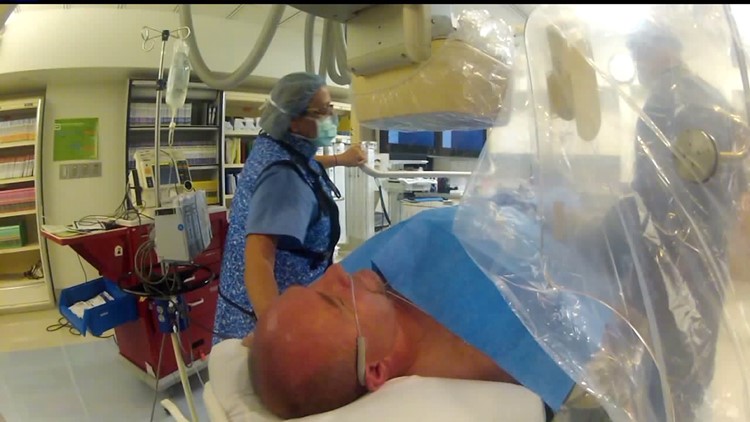LANCASTER, Pa. -- Approximately every 40 seconds, someone in the United States will have a heart attack, according to data collected by the American Heart Association.
When someone suffers a heart attack, every second counts.
Susquehanna Valley EMS showed just how quickly they have to treat heart attack patients, but don't worry, what you're about to see is not real, just a dramatization.
"Ugh, yeah! I think I'm having a heart attack," said a patient.
It's a race against the clock for Susquehanna Valley EMS paramedics responding to a suspected heart attack.
"People think we just show up. We put you in the back of the ambulance. We drive you to the hospital, but really there's a lot more than that," said Rob Walker, a paramedic.
Care begins as soon as the ambulance arrives.
Paramedics begin giving patients medication, testing their hearts, and transmitting the results right to a cardiologist at the closest hospital.
"We just took a look at your heart here with our EKG monitor, and there's pretty good chance you're having a heart attack," said Walker.
In this case, we're going to UPMC Lancaster, where once again minutes matter, according to the director of cardiology.
"We have 90 minutes to get them from the door, into the ER, make sure everything's all ready to go, into the Cath lab, and cross the lesion," said Shawn Hart, the director of cardiology for UPMC Lancaster-Lititz.
Physicians at the hospital will also test the patient's heart.
A doctor confirms this man has a blockage so he's off to the Cardiac Catheterization Lab, where physicians prep the patient, insert a catheter, and an x-ray camera takes photos of his heart.
"We take images of the heart muscle, and images of the blood vessels, and from that point, we actually start to fix them," explained Hart.
Thankfully, for this actor, doctors say he's going to be just fine.
That's not always the case, though.
He increased his chance of survival by immediately calling 911 when he first felt chest pain, and physicians say that's important.
"Don't sit there and drive yourself to the hospital. You have to make sure you call an ambulance, who can take care of them in transit, get them prepped for the hospital because hospital can take care of that patient. Again, if we get too far into... time is muscle, people will die," explained Hart.
According to paramedics, people over the age of forty have an increased chance of having a heart attack. They say there's a good chance of surviving if symptoms are caught right away.
According to information posted on UPMC's website, there are 5 critical heart attack symptoms in women, including: chest pain or pressure that comes and goes, sweating, nausea, dizziness or light-headedness, and pain in your jaw, arm, or back.
It goes on to say chest pain is the main symptom of a heart attack, and chest pain is more common in men than in women.\
According to the American Heart Association, symptoms do vary between men and women. As with men, women’s most common heart attack symptom is chest pain or discomfort. However, women are somewhat more likely than men to experience some of the other common symptoms, particularly shortness of breath, nausea/vomiting, and back or jaw pain.
UPMC Pinnacle Lancaster is located at 250 College Avenue in Lancaster, Pennsylvania.
To contact UPMC Lancaster, call 717-291-8211.



